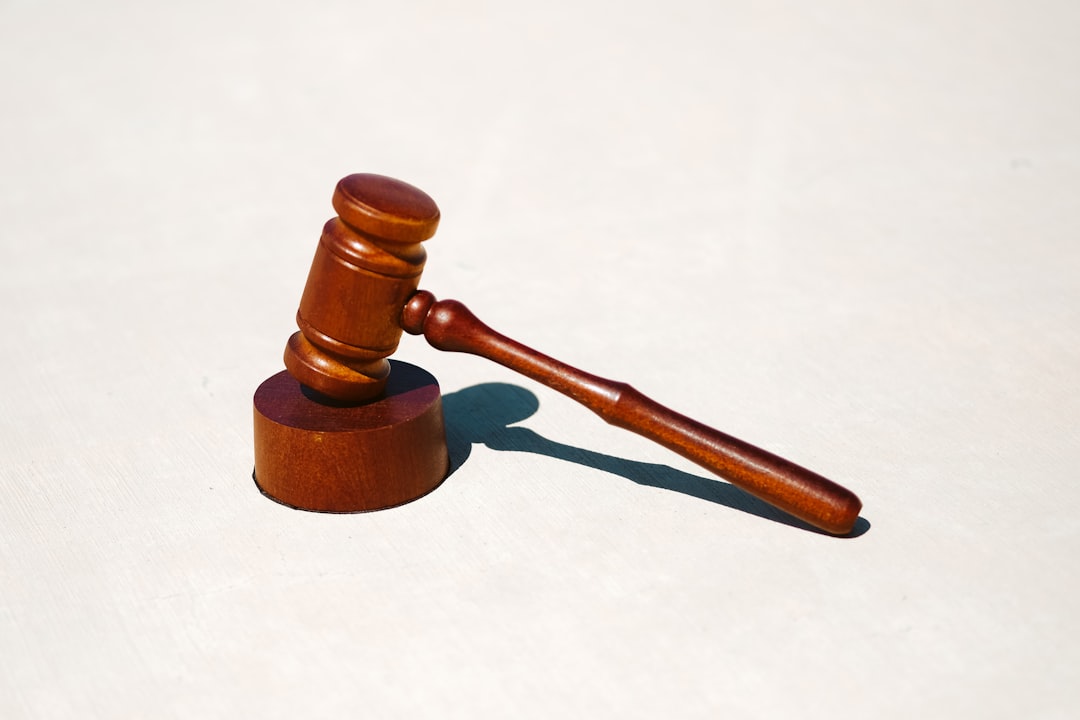Burlington, Iowa, enforces strict telemarketing regulations through the National Do Not Call Registry and local Do Not Call attorneys, empowering residents to opt-out of marketing calls. Businesses must comply with call timing restrictions, provide clear disclosures, and respect consumer preferences or face penalties, including fines and potential lawsuits, while fostering ethical communication practices.
In Burlington, Iowa, understanding telemarketing laws is crucial for businesses and consumers alike. This guide delves into the intricate web of regulations that shape the way companies conduct sales calls, focusing on the state’s unique landscape and the federal Do Not Call List. Learn about the legal consequences of violating these rules and discover best practices for ethical telemarketing, including how to navigate the complex environment with the help of Do Not Call attorneys in Iowa.
Understanding Telemarketing Regulations in Iowa

In Burlington, Iowa, as across the state, telemarketing is heavily regulated to protect consumers from unwanted or deceptive calls. The laws are designed to ensure that businesses conduct themselves ethically and with respect for individual privacy. One key regulation is the Do Not Call attorneys Iowa list, which allows residents to opt-out of receiving phone calls from specific sellers or marketers. Businesses engaging in telemarketing within the state must comply with these do-not-call requests, facing penalties for failure to adhere.
Additionally, Iowa has established guidelines regarding the content and timing of telemarketing calls. Marketers are prohibited from making calls before 8 a.m. or after 9 p.m., unless the caller has prior consent. Furthermore, they must provide clear and accurate information about the purpose of the call and give consumers an easy way to opt-out of future communications. These regulations aim to strike a balance between allowing businesses to reach potential customers and safeguarding residents from intrusive or misleading telemarketing practices.
The Do Not Call List and Its Implications

In Burlington, Iowa, like across the United States, the National Do Not Call Registry plays a pivotal role in curbing unwanted telemarketing calls. Consumers who wish to opt-out of receiving such calls can register their phone numbers with this federal list. This simple step significantly reduces the volume of unsolicited sales or marketing messages they receive from businesses and telemarketers. The implications are clear: it empowers individuals to have more control over their communication preferences, ensuring their privacy and peace of mind.
Moreover, understanding the legal ramifications is crucial for both consumers and businesses alike. Do Not Call attorneys in Iowa can guide residents on how to register, what rights they have, and what actions can be taken against violators. Businesses, on their part, must adhere to strict regulations to avoid penalties, ensuring that their telemarketing practices respect the wishes of those registered on the Do Not Call List.
Legal Consequences of Violating Telemarketing Rules

In Burlington, Iowa, violating telemarketing rules can lead to significant legal consequences. If a company or individual fails to comply with state and federal regulations, such as those regarding Do Not Call lists or the disclosure of caller information, they may face substantial fines. These penalties are designed to deter unethical practices and protect consumers from harassing calls.
Additionally, businesses found guilty of violating telemarketing laws can expect to suffer reputational damage and potential lawsuits from affected individuals or groups. Consumers have rights, and failing to respect them can result in legal action. Therefore, it’s crucial for any telemarketing operation in Burlington to stay informed about and adhere strictly to the applicable regulations, including those related to Iowa’s Do Not Call attorneys.
Best Practices for Ethical Telemarketing in Burlington

In Burlington, as in all parts of Iowa, ethical telemarketing is paramount. Businesses should always respect the “Do Not Call” registries and refrain from contacting residents who have explicitly opted out. Transparency is key; clearly state the purpose of the call and provide an easy way for recipients to opt-out or stop future communications.
Personalization goes a long way in building trust. Tailor your message to address specific needs or interests, rather than using generic scripts. Respect the recipient’s time by keeping calls concise and focused. Lastly, ensure all representatives are well-trained on current telemarketing laws, including those regarding Do Not Call attorneys in Iowa, to uphold the highest standards of professionalism.






